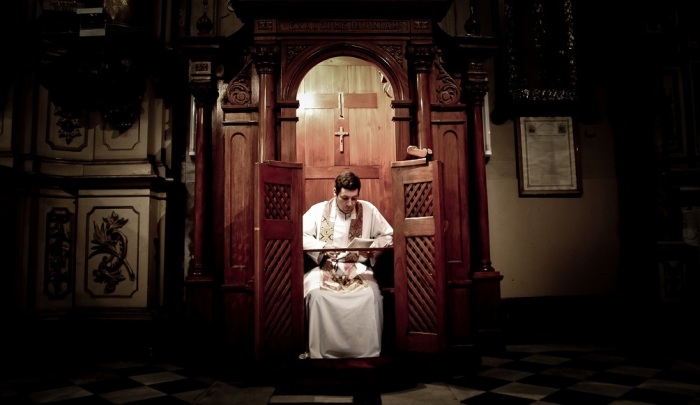Trust in pastors remains near record low: Gallup

Public trust in American clergy remained near record lows in 2020, according to a survey released by Gallup.
Lifeway Research, the publication arm of the Southern Baptist Convention, has analyzed the findings of Gallup’s annual ratings of the honesty and ethical standards of professions since 1985, the most recent installment of which was released on Dec. 22, 2020. One of the groups that respondents are asked to rate the honesty and ethical standards of is clergy.
In 2020, 39% of Americans agreed that their religious leaders had high or very high “honesty and ethical standards.” While that figure lies slightly above the record low of 37% reached in 2018, trust in clergy has decreased considerably from the record high it achieved more than 30 years earlier.
“For churches, for churchgoers, for clergy themselves, that’s not good news because … these are real perceptions that Americans have,” said Scott McConnell, executive director of Lifeway Research.“This trendline does correspond with the decline that we’ve seen in religious affiliation in recent years, and clearly, if Americans are not attending church, they would … likely not have personal relationships with a pastor. So without that regular contact, their perception will be based completely on secondhand information or media accounts of … pastors.”
Secular Americans “can still have a positive view of pastors even if they don’t attend the church, but the news they’re going to get on … it’s typically going to be bad news when it comes to the media or social media. That doesn’t necessarily mean that pastors are behaving worse than they did years ago, but the word travels farther when they do make mistakes,” he added.
According to McConnell, in the case of “any scandals that have occurred, if you’re not regularly attending a church … and knowing clergy members, then, for many people, that will be the only news they get about what pastors and church leaders are like.”
“The trendline since the year 2000, it’s pretty downward even though there’s a couple of years that it bounced back up, it’s been downwards since … around 2000. Where if you draw a trendline before 2000, fairly flat, even though there are a couple of big spikes,” McConnell continued.
“It definitely feels like this coincides with secularization … is that a lack of confidence in the clergy as individuals or is that a lack of confidence in the beliefs that the clergy of course are teaching? It likely can be a combination of the two.”
The clergy enjoyed the confidence of the majority of the American public for the better part of 30 years, with a record high of 67% of Americans believing religious leaders had high honesty and ethical standards in 1988.
Even in the early 2000s, as news of the sex abuse scandal in the Roman Catholic Church first broke, a majority of Americans still believed that members of the clergy had high honesty and ethical standards. It took until 2013 to reduce the majority of Americans who thought the clergy had high honesty and ethical standards to a plurality.
The clergy was just one group of professionals the American people were asked to rate for their public perception of honesty in 2020. While only 39% of Americans agreed that the clergy had high levels of honesty and ethical standards, several groups were pegged as less honest than priests and pastors: Nursing home operators (36%), bankers (29%), journalists (28%), lawyers (21%), business executives (17%), advertising practitioners (10%), car salespeople (8%) and members of Congress (8%).
Meanwhile, more Americans saw nurses (89%), medical doctors (77%), grade-school teachers (75%), pharmacists (75%), police officers (52%) and judges (39%) as having higher honesty and ethical standards than members of the clergy. The fact that the public rated medical professionals so high is likely a result of the fact that the coronavirus pandemic dominated Americans’ concerns in 2020.
While only 39% of the American public as a whole thought that members of the clergy had high honesty and ethical standards, that number rose to 54% among Republicans. Thirty-eight percent of Democrats believe that the clergy has high honesty and ethical standards, while only 32% of independents said the same. This trend is mirrored when categorizing the survey results based on ideology: 48% of conservatives, 41% of moderates and 27% of liberals believed that the clergy has high honesty and ethical standards.
Thirty-six percent of males thought the clergy had high honesty and ethical standards compared to 43% of females. The gender gap could be a result of the fact that the victims of sex abuse at the hands of clergy were primarily males.
A higher percentage of non-white Americans (49%) than whites (43%) viewed the clergy as having high honesty and ethical standards. Just 24% of those between the ages of 18 and 34 believed that the clergy possessed high honesty and ethical standards while 41% of those between the ages of 35 and 54 thought the same. A majority (51%) of those 55 and older maintained that the clergy had high honesty and ethical standards.
Forty-nine percent of college graduates concluded that the clergy had high honesty and ethical standards compared to 40% of those who had completed “some college” and 33% of those with high school diplomas or less.



























